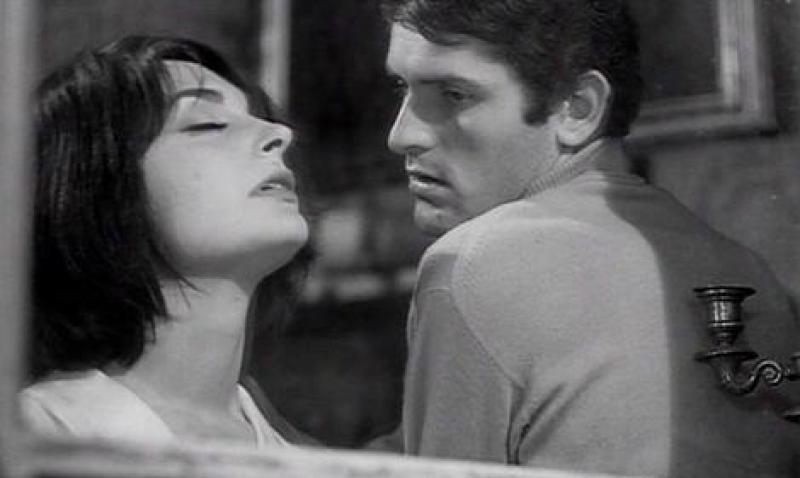In the realm of filmmaking there is a quiet figure who sits in the corner of the movie theatre, who never takes his eyes off the silver screen and once the screening is over rushes out, to write about this oneiric experience.
The role of the film critic is neglected in the age of social media, now that many can improvise themselves as writers, just by starting a blog and venting out personal opinions. But criticism requires familiarity with the history of the topic that is being scrutinized, along with a large dose of humbleness to prevent a prejudiced judgmental approach.
Morando Morandini, Italy’s greatest film critic, possessed these qualities. The Roger Ebert of the boot-shaped land, died at age 91, leaving all cinema lovers mourning for the loss of one of the country’s most prominent intellectuals.
Mr Morandini was born in Milan on July 21st 1924 and grew up in Como where he founded a cinema club, and already by 1947 he was a professional journalist, writing about movies, television and theatre, for newspapers such as La Notte (from 1952 to 1961), Stasera (from 1961 to 1962) and Il Giorno (from 1965 to 1998). His intellect soon conquered directors who initiated long lasting friendships, to the point that he was asked to act in two films: Bernardo Bertolucci’s ‘Before the Revolution’ (1964) and a Remake of Ansano Giannarelli (1987), where he played himself.
Morando was author of several monographes of directors such as ?jzenštejn, Bertolucci, Huston and in 1995 he published “Non sono che un critico”, (I’m Nothing But A Critic), an autobiographical book, where he explores his sensitivity as a spectator, channelled in the writing form of film criticism. His greatest love was undoubtably cinema, of which he would write about through the night, in company of his typewriter and cigarettes; but he was also a family man, fond husband and father of two daughters, a son, and grandfather of four. His temperament was gently introverted; he would define himself as “a rational emotional person,” using an oxymoron to portray his punctilious, precise and caustic observations in his job just as in his private life.
In 1998 with his wife, Laura, and with one of his daughters, Luisa, he created the Dictionary of Film, published by Zanichelli, which is considered the Bible of cinephiles and is released annually. Morando also hosted several film festivals and founded one in memory of his loving wife: Laura Film Festival in Levanto. His life was devoted to film. When people asked him about his profession he would jovially quote Elia Kazan, who had written that “critics are like eunuchs guarding an harem without enjoying it.” Morando never placed himself on a pedestal and those who – like myself – had the fortune of knowing him, will recall how he would encourage to be respectful also when reviewing bad films. He was pondered and scrupulous in his analysis. When entering a press screening if you saw a little light going up in one of the front-left seats it wasn’t a smartphone, but Morando’s little torch that would illuminate his notepad while he would take notes. That was his spot, because he said that “movies must be read from left to right, like books.”
In 2014 the Milanese beacon of the world of film was given the Ambrogino D’Oro, an award that tributes the citizens of Milan who have been exceptional in their profession. That same year he celebrated his 90 years at Cinema Anteo in Milan, which has also been the venue that laically saluted the maestro, through anecdotes told by family members, friends, colleges and cinema aficionados who had the chance to have met him.
His death leaves a huge void in the world of film, but also an incredible legacy of film writings. In fact, his daughters Luisa and Lia announced that all the pre-digital articles he wrote and collected in folders, along with those of his colleagues, and his extensive collection of books on films will be donated to the Cineteca (Film Library) of Milan. Hence his knowledge is bequeathed to the city he loved, that contrarily to Rome with Cinecittà or Turin with The Cinema Museum has a less flamboyant cinematic heritage.
During one of his last interviews Mr Morandini was asked what film he would choose if he were to go away on a long journey. The film critic, sitting at his desk, ticking on his typewriter (he never learnt how to use a computer), wrapped up in a cloud of smoke as he puffed a cigarette, replied he would pick ‘Le Quai des brumes’ (Port of Shadows), where Marcel Carné directs Jean Gabin, Michel Simon and Michèle Morgan, with poetic realism.
Along these lines, now that Morando Morandini has actually left for the most mysterious of life’s journeys, wherever he may be, those who loved him would like to imagine him watching ‘Port of Shadows,’ in an old movie theatre were smoking is allowed.
Written by: Chiara Spagnoli Gabardi

